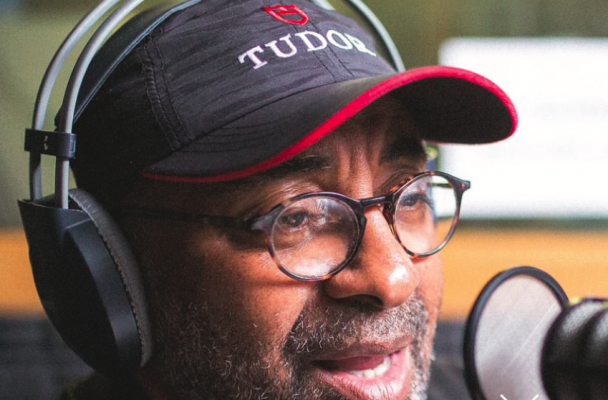Students and radio host meet for round table discussion

By Nicholas Bainbridge// News Editor
Byron Williams, writer of “Stripmall Patriotism” and host of the radio talk show “Public Morality,” visited High Point University on Oct. 24 to participate in the Free Press Round Table event, latest in HPU’s series of Free Speech on College Campus speakers.
This was Williams’ second visit to HPU to speak on the topic of Free Press. He met with HPU students and faculty in the Congdon School of Health and Sciences to discuss current issues with the media and society as a whole.
Williams claimed that the country was grappling with the question of “Is there still a place called home?” He argued that people are divided because of symbols, including the idea of America which is held dear to some as home, but everything has different meanings to different people.
“America is a nation formed on an idea, not anything else. An idea formed on liberty and equality,” explained Mr. Williams. “But this meant different things to different people, and it is difficult to have a collective understanding and definition of what ‘America’ is.”
Williams argued for the distinction between “truth” and “facts,” and said that while people can share the same facts, they will have different truths determined by their location within society and their experiences.
While the fact was accepted that “all men were created equal,” the truth in the early stages of America was that only a small minority of people were actually afforded the full rights and responsibilities of being a member of the democratic republic. It is Williams position that because of this idea, “America” holds radically different meanings amongst different people living in the same country.
This talk of symbols and their meaning developed into a more open discussion about how the same thing holds different meaning to people in the modern era, with a focus on the controversy surrounding Colin Kaepernick and the American flag that permeated the public consciousness a year ago.
Williams stated that the reason it was so divisive was because Kaepernick and his supporters had a different interpretation of what kneeling in protest meant than their critiques. The consensus of the roundtable was that the media is mainly responsible for this adverse outcome and its lack of appreciation for nuance. They said that the press was doing a disservice by trying to push people to hold certain positions rather than presenting the whole facts of the case.
“Free press are the gatekeepers of all rights and should not be telling people what to think,” Byron Williams stated.
The discussion then shifted to how the polarization is a symptom of the quest for homogenization of people and trying to force everyone to have the same truth. While homogenization might seem appealing at first, the members of the discussion pointed out that seeking it out leads to the exclusion of “the other.”
After discussing how excluding people is bad and how one should not handle disagreement with the idea, the discussion returned to the topic of Colin Kaepernick and his endorsement with Nike. The topic was broached about whether or not it was wise for the company to make the political push and alienate some of their consumers in a condescending moralistic way, especially considering Nike’s questionable business practices in the third world. The general consensus of the roundtable was that Nike was doing something right, with some arguing that it was inconsequential.
Byron Williams is pictured recording for a show. Photo by WSNCcom